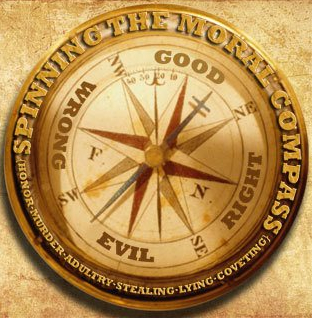There are other people out there
Humans are born with the capacity for empathy. All of us can put ourselves in someone else’s position and feel, to some degree, what they feel. But empathy, which is the foundation of intimacy and connection between people, is a learned behavior. We can improve our ability to empathize, and doing so is good. Why? Low levels of empathy create relationships that remain emotionally shallow and are defined mostly by mutual interests or shared activities.
Sometimes we get wrapped up in ourselves, and we forget there are other people out there. Not literally, of course, but our lack of self-awareness keeps us from properly seeing the emotions and behavior of others. Simply put, sensitivity toward others is improved through self-awareness. When we are unaware of our feelings we become disconnected from others, and we are more apt to be apathetic than empathetic.
Awareness of others is bound by the perceptions, understanding, and acknowledgement we have for others. Our awareness makes them feel valued, listened to, cared for, and accepted. Our connection to other people is developed through this same awareness. When empathy is mature, it encourages acts of compassion. We demonstrate apathy and insensitivity without empathy and compassion when we are unaware.
“We must learn to regard people less in the light of what they do or fail to do, and more in the light of what they suffer.” ~ Dietrich Bonhoeffer
What is Empathy?
 We are transformed when we personally experience the emotions of another. It is not sufficient to know the circumstance that occupy that person’s life. Empathy is not a metaphor for walking a mile in someone else’s shoes, because it is more than a shared experience. We have empathy when the burdens, the pain, and the goals of another person become ours.
We are transformed when we personally experience the emotions of another. It is not sufficient to know the circumstance that occupy that person’s life. Empathy is not a metaphor for walking a mile in someone else’s shoes, because it is more than a shared experience. We have empathy when the burdens, the pain, and the goals of another person become ours.
Dr. Brené Brown notes the error in discussing empathy and sympathy as interchangeable terms. She explains that humans are inherently built on establishing connections with each other. As we evaluate situations and the people in them, we often are either sympathetic or empathetic. Dr. Brown tells us that sympathy drives disconnection and empathy promotes human connection. Sympathy is feeling for someone while empathy involves feeling with them.
Empathy and Vulnerability: Transparency demonstrated through:
1. Adopting Perspective — mindfully placing yourself in someone else’s situation
Adoption means to take up, and while it is used often to mean legally taking up a child, it is not limited to that. Our ability to identify, understand, and engage in what another might be thinking and feeling often depends on adopting a perspective. Perspective through the lens of emotions helps us see circumstance from someone else’s point of view.
2. Avoiding Judgment — a starting point for listening
Walt Whitman said it well, “Be curious, not judgmental.” We may be naturally judgmental, but it is seldom useful. We must seek to understand others rather than judging them.
“I am grateful that I am not as judgmental as those overcritical, self-righteous people around me.” – Anonymous
Perhaps you understand the humor in the anonymity.
3. Recognizing Emotions — because you have experienced them
I know that I can sometimes hear the emotions of others better by closing my eyes and just listening. See if you can shut out the distractions around you as you talk with someone else. You can learn how to show up for social interactions. And you can engage in simple exercises that will help you be more aware of those around you.
4. Communication — our response to situations and the emotions of the moment
Everyone talks about communication, and many people claim to understand communication but continually fail to execute! Why does communication break down?
One reason is our failure to be aware of others. That awareness is heightened when we pause and reflect before we speak. Have you ever spoken too soon? Of course you have. You were betrayed by your tongue because you spoke without thinking of the other person in the context of the situation. We are called to be quick to listen and slow to speak. Knowing when to listen and when to speak is the essence of communication.
 Empathy in the Workplace — Why it Matters
Empathy in the Workplace — Why it Matters
Imagine a workplace where high levels of empathy are present. A place where people are skilled in situational awareness. Now imagine that it is your workplace.
If it isn’t like that, do you think learning about empathy could develop more trust? Could it improve connection and communication? Would performance go up? The answers are obviously yes. In addition, your teams would be stronger, collaboration would increase, and attrition would shrink.
That is quite a payoff for improving awareness of self and others, and of learning empathy. All of those are part of the Do Good University business education program.
Learn to do good in those ways, and you will find yourself doing good in many more ways. And that’s good.
